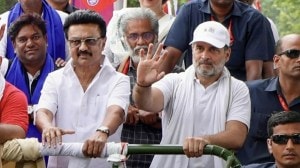Tele Democracy
Private telecom players paid thousands of crores to government as 8216;8216;licence fees8217;8217; to introduce mobile services in the e...

Private telecom players paid thousands of crores to government as 8216;8216;licence fees8217;8217; to introduce mobile services in the early 1990s. But successive governments and industry realised their folly: The fees were much too high and would have to drop drastically.
Since then, every time government cuts entry costs in telecom, there are clamours of protest from those who paid through their noses. The first movers will not stay silent this time, too.
Last week, the government cut National Long Distance NLD entry fee from Rs 100 crore to Rs 2.5 crore, and International Long-Distance ILD entry fee from Rs 25 crore to Rs 2.5 crore. The aim, Telecom Minister Dayanidhi Maran said, is to introduce OneIndia quickly.
Lower mobile-phone tariffs are good for consumers. They are also good for wireless companies, which can build volumes and cash in on value added services SMS, ringtones, caller-ID. But industry is muddled over the decision. First, because they really don8217;t want a single all-India calling rate, even if it is the only really ambitious telecom policy from the current dispensation.
Usually, industry challenges every earth-shattering decision the government or the regulator make, and this time too, there are murmurs of protest from operators like Bharti who feel they deserve a 8216;8216;refund8217;8217; every time licence fees fall. Secondly, private telecom operators feel there are 8216;8216;too many8217;8217; telecom companies in each circle already, resulting in far too much competitive pressure.
But by the same logic, the government couldn8217;t have timed its move towards OneIndia any better. For one, each telecom company, with a rare exception or two in some states, has 8216;8216;national8217;8217; not 8216;8216;regional8217;8217; aspirations.
Take a look: Of Tata Tele, Bharti, Hutch, Idea, MTNL, BSNL, Reliance and Aircel, the eight major telecom companies, none is in less than 10 of 23 circles. Bharti and BSNL are in all circles, Hutch will be in 7 new circles next year, Idea in a total 11, Aircel in 12 new circles, Reliance and Bharti in 5,000 new towns and BSNL will soon start rolling out 20-60 million new lines.
Where8217;s the doubt? With the telecom rules relaxed, the competition in NLD and the subsequent drop in STD charges, all operators 8212; except those who already hold long-distance licences Bharti, Reliance, TTSL 8212; will benefit.
8216;8216;This will change the definition of long distance in the country and is a win-win for every operator. More importantly, it will bring down the consumer8217;s STD bill,8217;8217; said Idea Cellular CEO Vikram Mehmi. His comments are at variance with Bharti, which has already decided to approach the telecom minister with 8216;8216;level playing field8217;8217; concerns that are still to be borne out.
The government, finally, is ready to rope in more players, no matter how VSNL, Bharti and Reliance feel about competition and playing fields. As a COAI official said, 8216;8216;Lower entry fees will lead to a higher number of players and ensure a further falls in tariffs for long distance calls8221;.
- 01
- 02
- 03
- 04
- 05






























